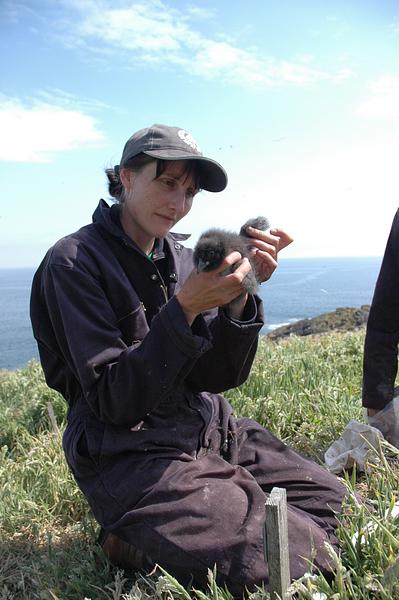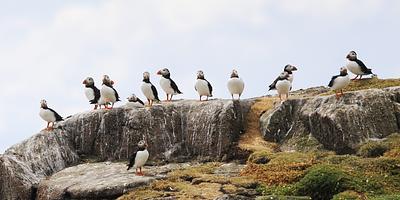We're excited to be hosting a suitably creepy, crawly topic for our Meet the Scientist event this Halloween week.
Beyond the nose-wrinkling idea of parasitic worms, their presence is actually a really important indicator of the health of wild seabirds. Dr. Sarah Burthe, Animal Population Ecologist from the UK Centre for Ecology and Hydrology, is currently researching this fascinating topic and is delighted to tell us more:
"Parasites are very common in wild animals. Most people will be aware of parasites if they have pet animals or livestock and will know the importance of treating animals to prevent infections. However, perhaps you are not so familiar with the effects parasites can have on wild animals. Parasites, including bacteria, viruses, fungi, ecto-parasites such as fleas and ticks, and larger parasites such as worms, form an important, though rather maligned, part of food webs and can have important and large impacts on wild animal hosts.
In this talk I will present some of our long-term research investigating how nematode worms affect the energetics, behaviour and survival of wild seabirds on the Isle of May, Scotland. I will talk about how some individuals have more parasites than others and how parasites can also interact with human-driven changes in the environment such as contaminants and climate-change".

Photo credits Shag - ©️ Sarah Burthe Puffins ©️ Greg Macvean

